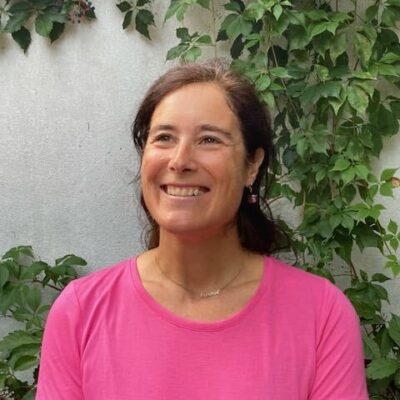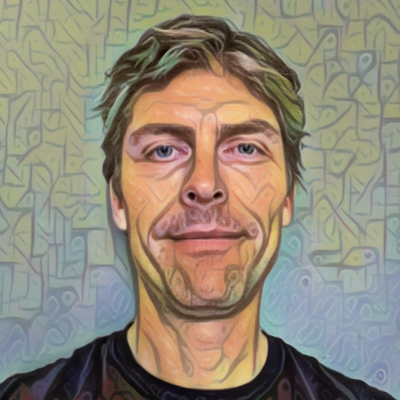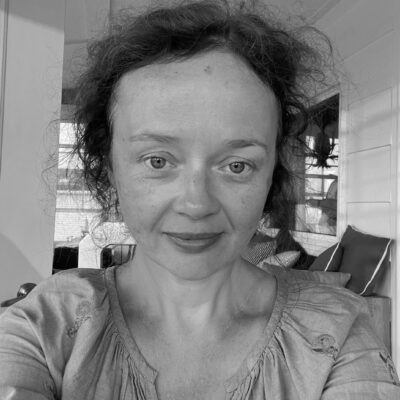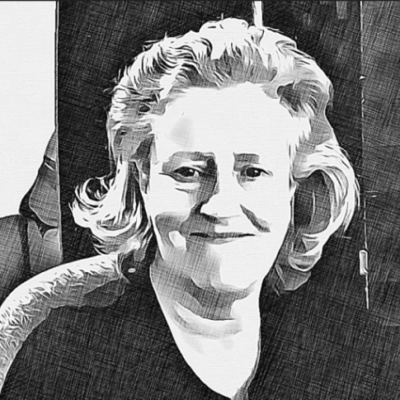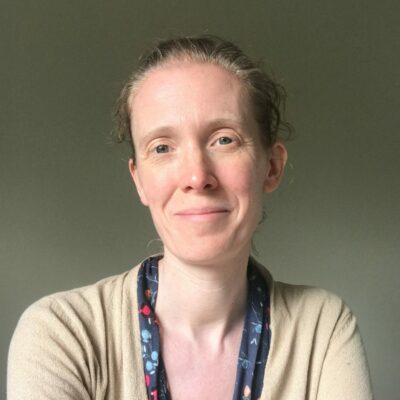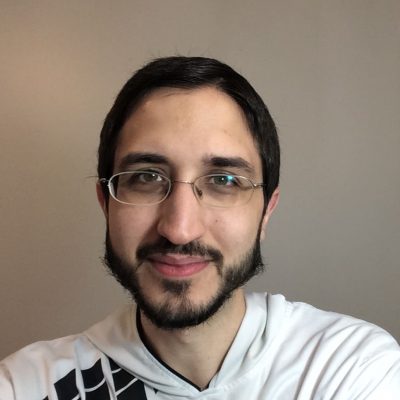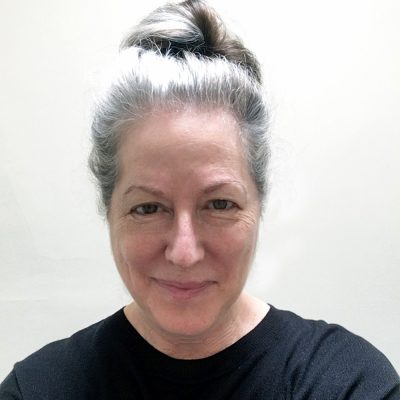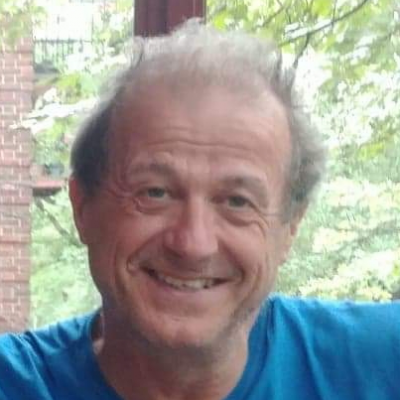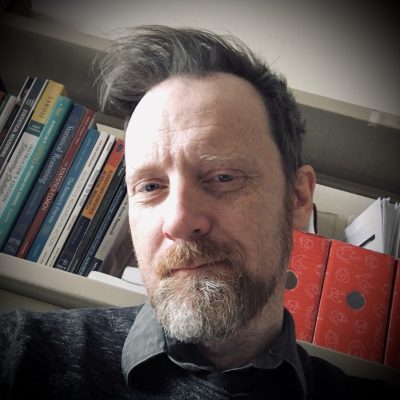DawsonAI Teaching Fellows
2022-2023 Cohort
Annie-Hélène Samson
BiologyAnnie-Hélène Samson has been teaching biology at Dawson since 2002. Initially drawn into neurophysiology and biology through her master’s degree, teaching became her passion and she completed a Ph.D. in education at the University of Kwazulu-Natal in South Africa. Involved in the Learning Communities initiative at Dawson, she constantly strives to make interdisciplinary connections and…
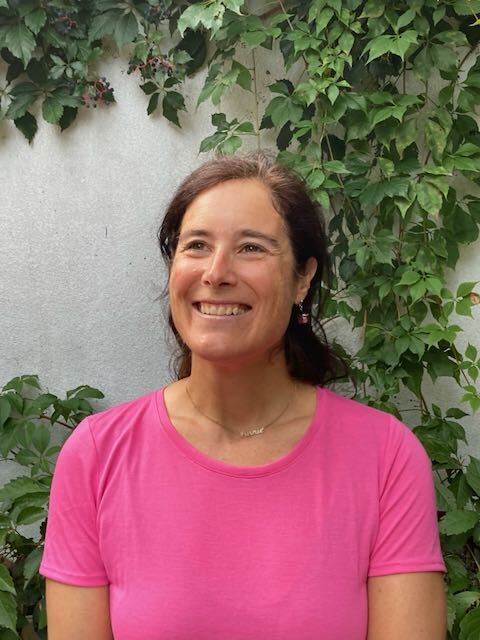
Annie-Hélène Samson
Annie-Hélène Samson has been teaching biology at Dawson since 2002.
Initially drawn into neurophysiology and biology through her master’s
degree, teaching became her passion and she completed a Ph.D. in
education at the University of Kwazulu-Natal in South Africa. Involved in the
Learning Communities initiative at Dawson, she constantly strives to make
interdisciplinary connections and is now keen to introduce students to the
wonders of AI and its potential role in deciphering the many mysteries of
biochemistry.
Brian Redekopp
Humanities, PhilosophyBrian Redekopp holds a Ph.D. in philosophy from McGill and has been teaching philosophy and humanities courses at Dawson since 2011. Currently co-coordinator of the new Society and Technology profile in Social Science, he is broadly interested in how to help students develop a more critical and empowered understanding of the technology shaping their lives,…
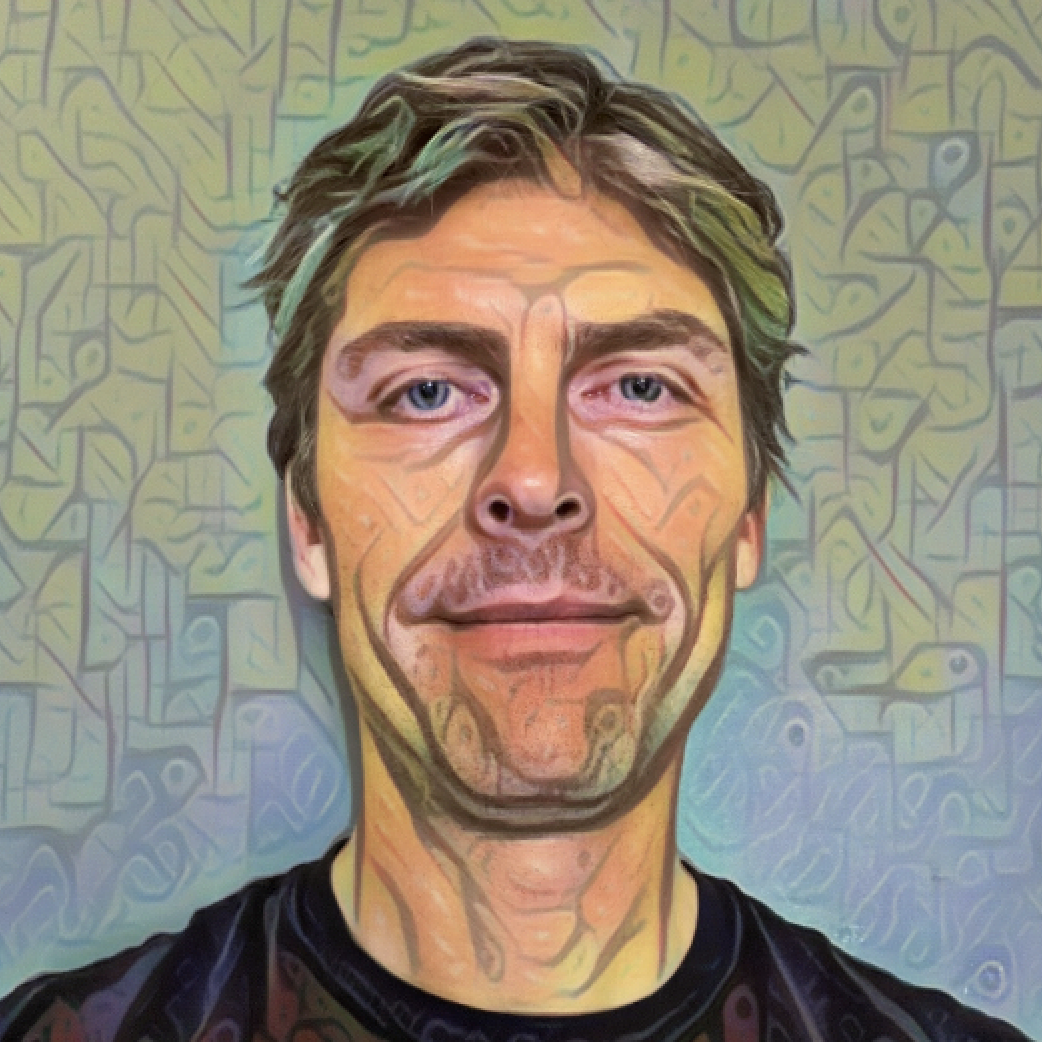
Brian Redekopp
Caroline Chochol
PsychologyCaroline Chochol holds graduate degrees in neuroscience, human development, and psychology from McGill University and Harvard University. They have been teaching in the Psychology department at Dawson College since 2011, and are also a faculty advisor for the Dawson College Model United Nations team. In addition to teaching, Caroline held a research role in two…
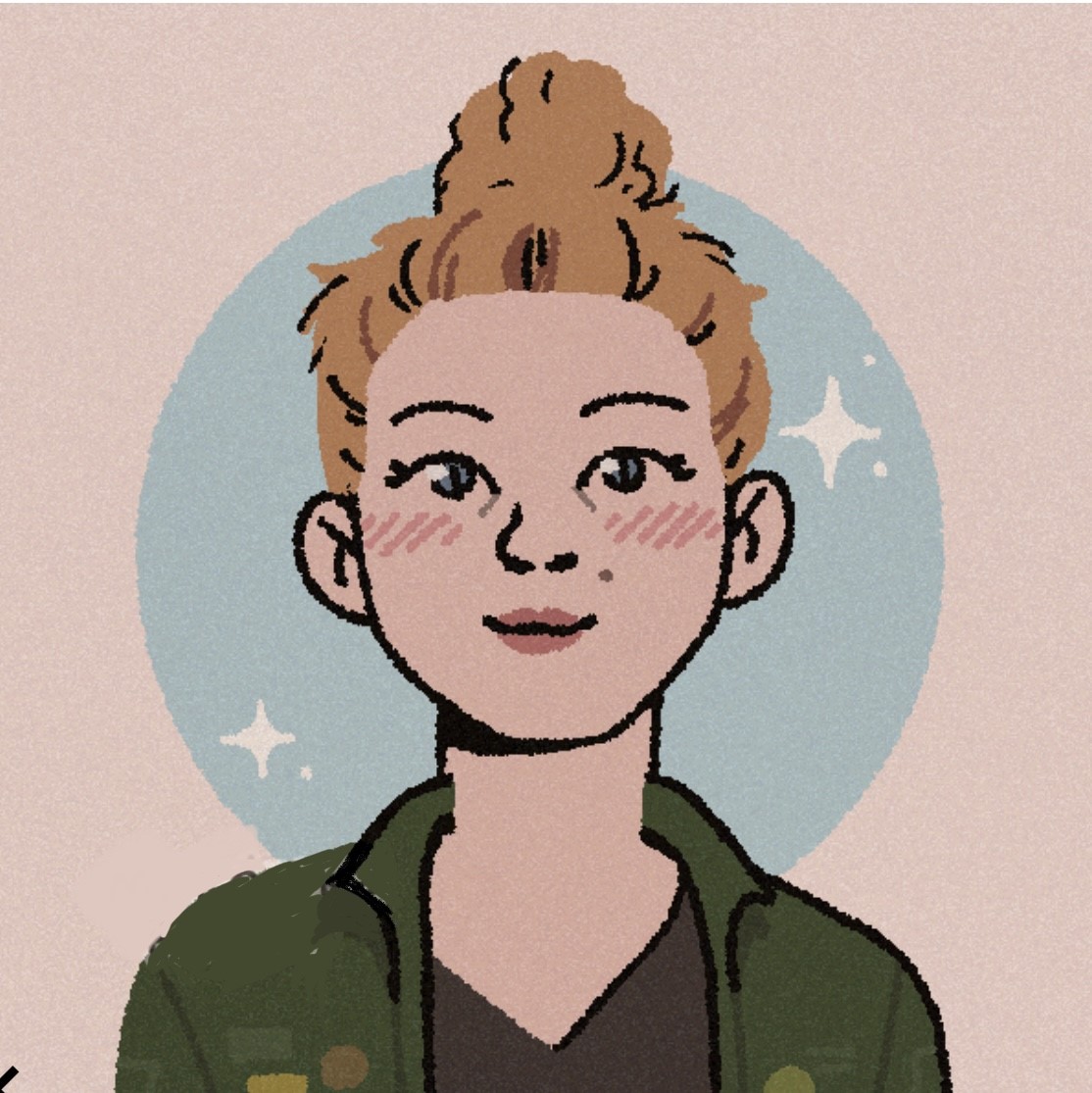
Caroline Chochol
Caroline Chochol holds graduate degrees in neuroscience, human development, and psychology from McGill University and Harvard University. They have been teaching in the Psychology department at Dawson College since 2011, and are also a faculty advisor for the Dawson College Model United Nations team.
In addition to teaching, Caroline held a research role in two ECQ-funded studies designing and implementing simulation-based experiential pedagogy for Social Science courses.
Caroline is interested in ethical and practical issues related to the use of AI in mental health (e.g., the use of algorithms in disease detection or diagnosis, the use of AI in psychotherapy), and the application of clinical and behavioural data in the justice system (e.g., recidivism prediction instruments, criminal profiling, de-radicalization).
Ellie Bodzay
Computer ScienceEllie is a faculty member in the Computer Science Department. After receiving her BSc in Computer Science from McGill University, Ellie worked as a software engineer developing voice recognition technology. While she has only been at Dawson College since 2021, teaching has been an important part of her life since long before, working as a…
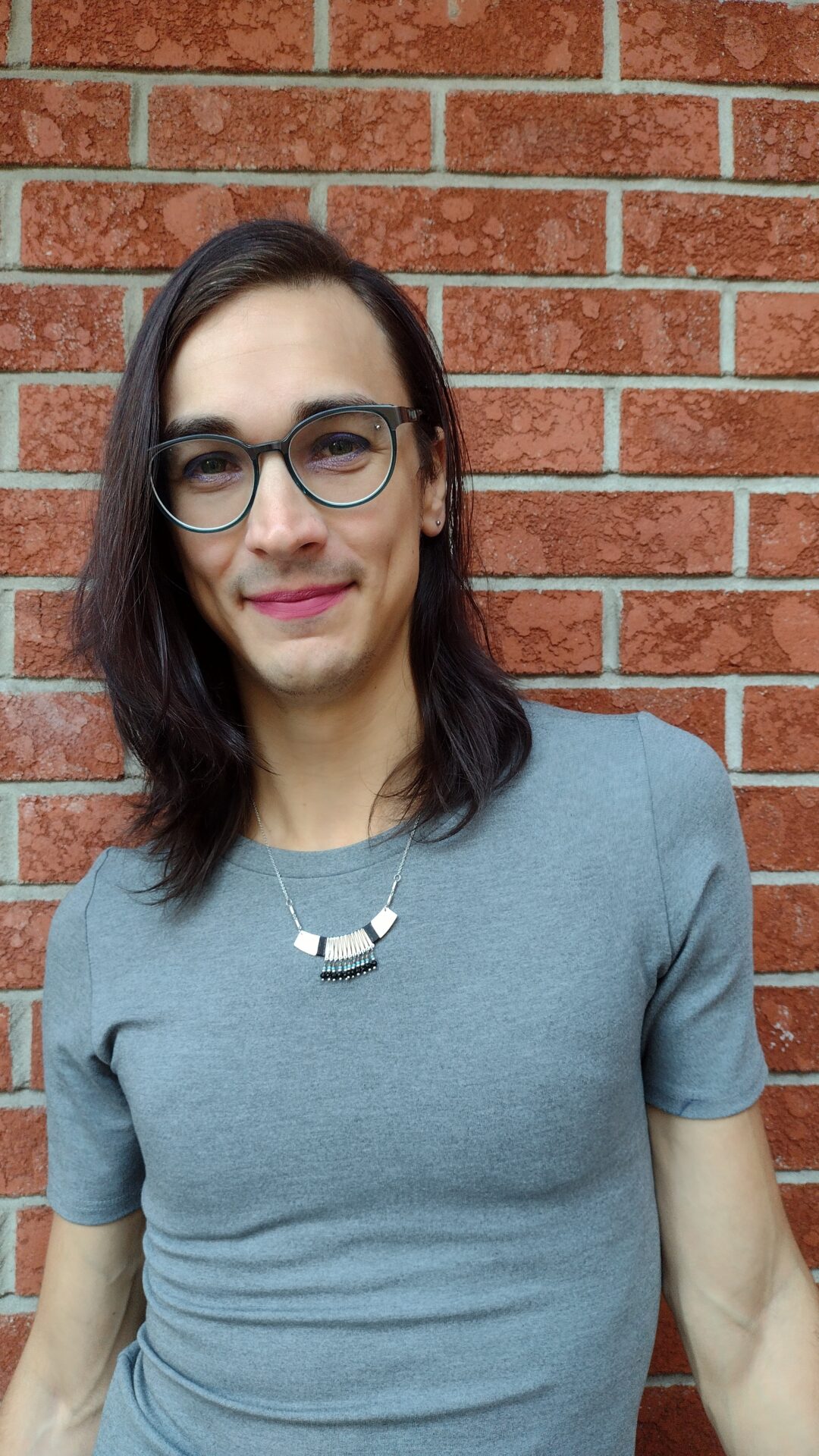
Ellie Bodzay
Ellie is a faculty member in the Computer Science Department. After receiving her BSc in Computer Science from McGill University, Ellie worked as a software engineer developing voice recognition technology. While she has only been at Dawson College since 2021, teaching has been an important part of her life since long before, working as a lifesaving instructor, teaching assistant, and more.
Now her research interests are split between her MSc work on robotics for environmental monitoring, and her pedagogical interests in empowering students to recognize the societal effects of dataset bias and to question, can modern AI be free of bias?
Yoon-Seo Uh
ChemistryI am a faculty member of the chemistry department and have been teaching at Dawson College since 2007. As a complete novice to the world of artificial intelligence (I once thought that a chatbot was a real person!), I am joining the Dawson AI community by taking a small role in an interdisciplinary AI project…
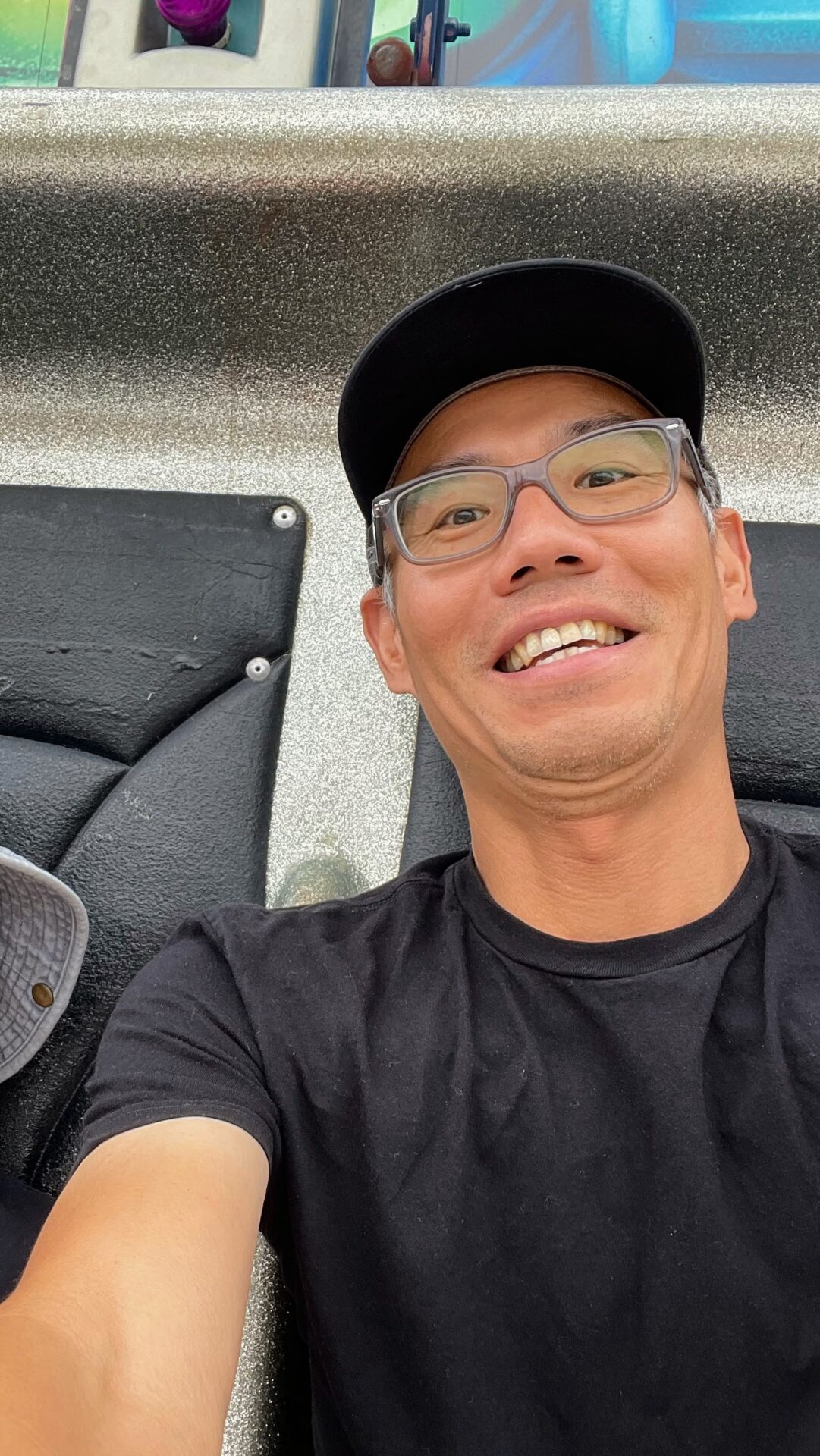
Yoon-Seo Uh
I am a faculty member of the chemistry department and have been teaching at Dawson College since 2007. As a complete novice to the world of artificial intelligence (I once thought that a chatbot was a real person!), I am joining the Dawson AI community by taking a small role in an interdisciplinary AI project of Annie-Helene Samson. Annie-Helene and I have previously teamed up in the development of a Chem-Bio paired course through the Learning Communities initiative. I am truly grateful for this opportunity to take part in the AI teaching fellowship and look forward to diving into the fascinating world of AI under the stewardship of Robert and Joel.
2021-2022 Cohort
Andrew Katz
EnglishAndrew Katz grew up in Montreal and has been teaching English at Dawson College since 2006. His areas of specialization include Creative Writing and Children’s Literature, and in 2013 he won the Dawson College Director General’s Award for Teaching Excellence. He is also the author of three picture books for children, How to Catch a Bear Who Loves to Read,…
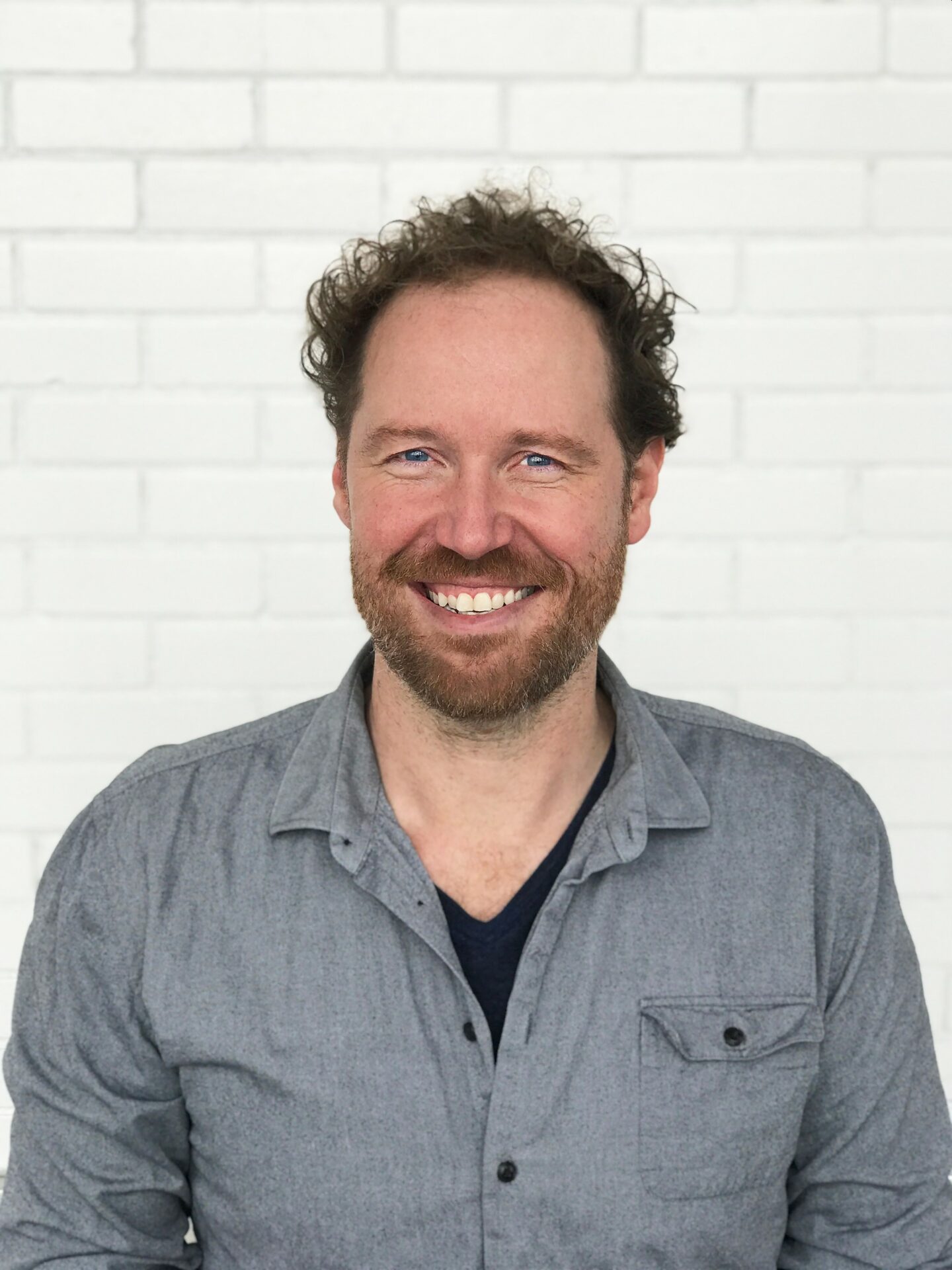
Andrew Katz
Andrew Katz grew up in Montreal and has been teaching English at Dawson College since 2006. His areas of specialization include Creative Writing and Children’s Literature, and in 2013 he won the Dawson College Director General’s Award for Teaching Excellence. He is also the author of three picture books for children, How to Catch a Bear Who Loves to Read, published simultaneously in French as Comment attraper un ours qui aime lire, as well as I Just Want To Be Super! / Je suis Super Nino! and the upcoming A Starlit Trip to the Library / Voyage de nuit à la bibli, in the Fall 2021. In his work as an AI teaching fellow, he is exploring what children need to know about Artificial Intelligence, specifically the ways in which AI intersects with their lives, for better and for worse, and how we might teach this foundational knowledge to kids through children’s literature.
Daniel Goldsmith
HumanitiesDaniel Goldsmith has been teaching in the Humanities department at Dawson College since 2009. His formal education includes a BA and MA from McGill University. Perhaps more important was the informal education that took place during his one and a half years of studying yoga and meditation in India and Nepal. Daniel is interested in…
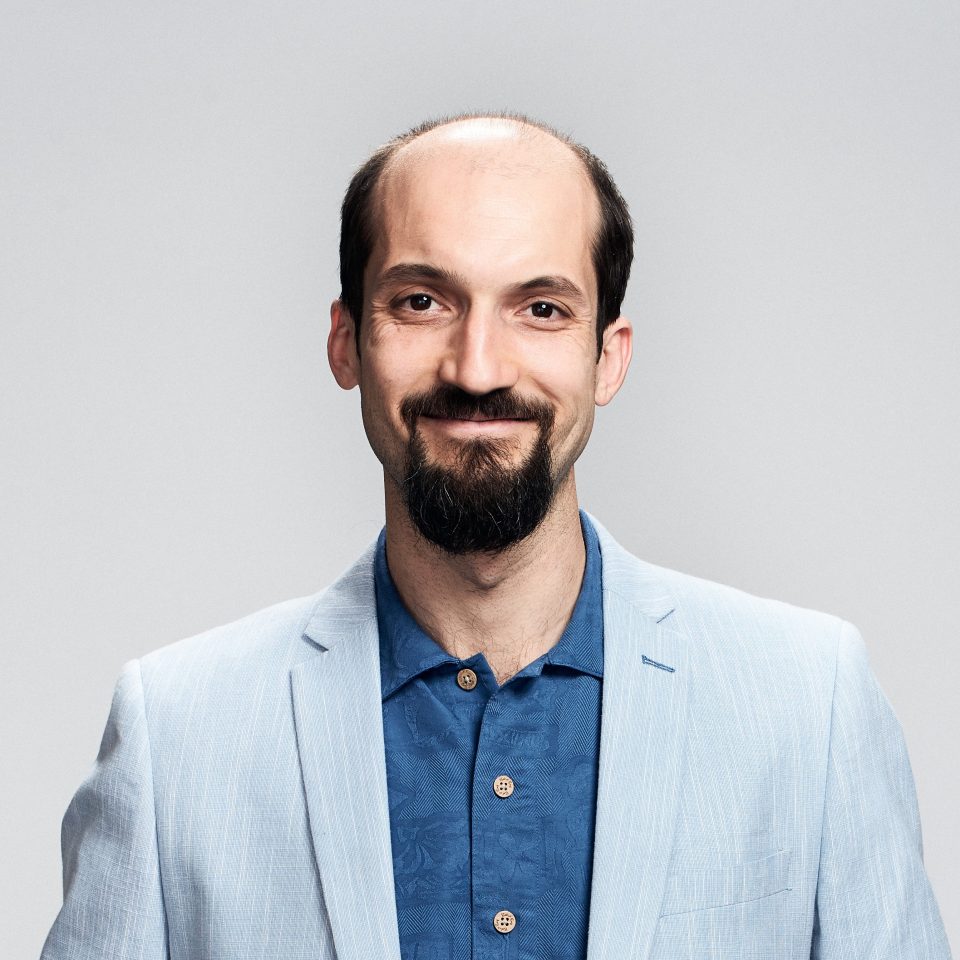
Daniel Goldsmith
Daniel Goldsmith has been teaching in the Humanities department at Dawson College since 2009. His formal education includes a BA and MA from McGill University. Perhaps more important was the informal education that took place during his one and a half years of studying yoga and meditation in India and Nepal.
Daniel is interested in combining ancient spiritual teachings with modern scientific understanding, especially regarding the question of identity. His work in AI seeks to understand how it will impact spiritual practice, along with the opportunities it could create for our future evolution.
When he’s not pondering existential questions, you’ll find him hiking in the Eastern Townships with his wife and three young children.
Kasia Wolfson
AnthropologyKasia Wolfson has been teaching in the Anthropology Department since 2011. Her training as a photographer informs her understanding of visual representation and material culture. She is interested in how human beings construct, communicate and consume the world around them. Kasia is exploring how the digital transformation of the image is amplified by AI. In…
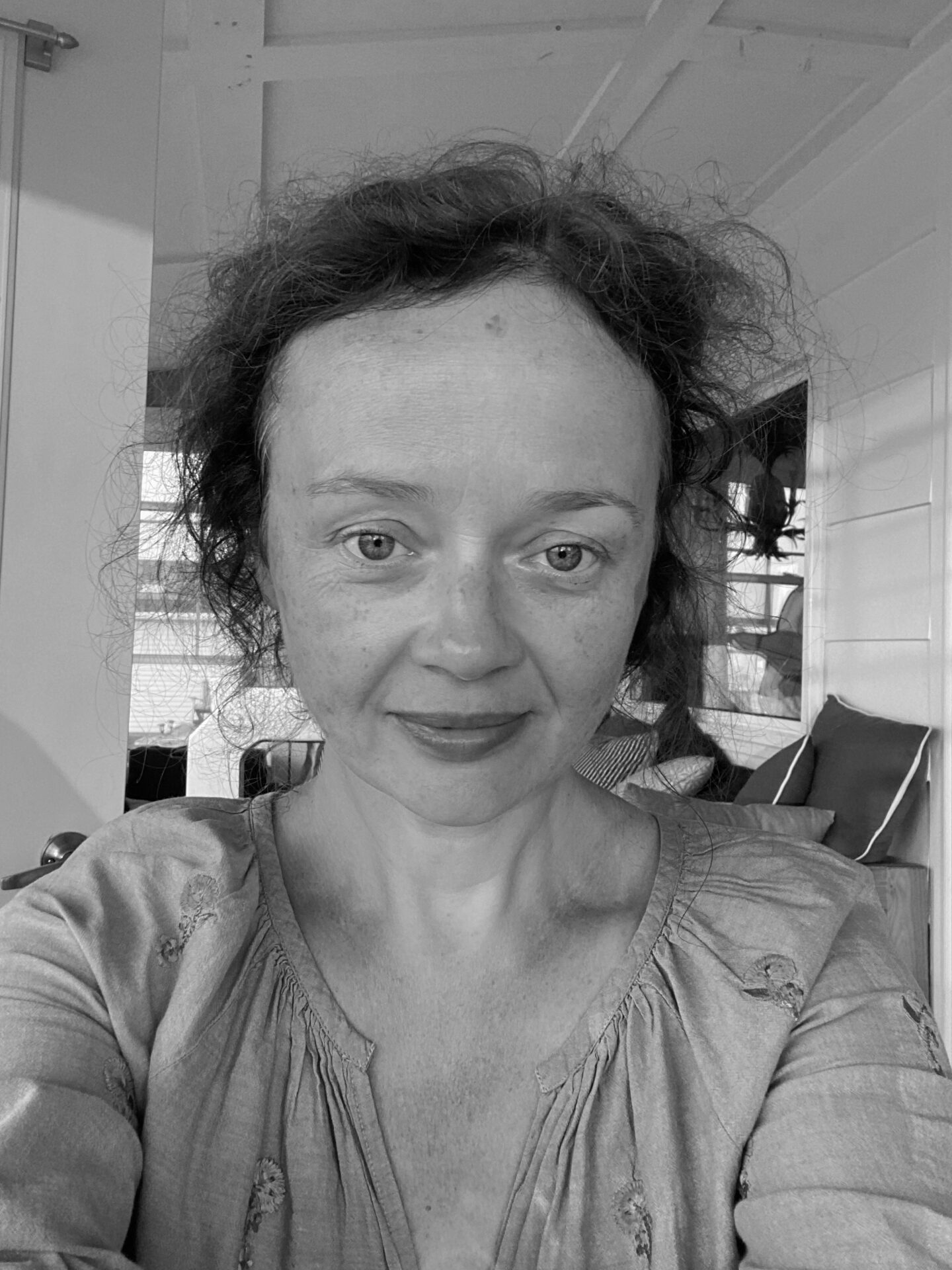
Kasia Wolfson
Kasia Wolfson has been teaching in the Anthropology Department since
2011. Her training as a photographer informs her understanding of visual
representation and material culture. She is interested in how human beings
construct, communicate and consume the world around them. Kasia is
exploring how the digital transformation of the image is amplified by AI. In
particular, she investigates the human reliance on images as evidence at a
time when the relationship between image and reality is being confounded
by the phenomena of deepfakes and related image transformation
technologies such as Deep Nostalgia.
Michel Fournier-Simard
Political ScienceMichel Fournier-Simard teaches in Dawson’s Political Science Department since January 2020. He is currently completing his Ph.D. at McGill University, where he specializes in algorithmic policing. His dissertation is titled “The Politics of AI: the Case of Canadian Policing.” As a Dawson AI teaching fellow, Michel developed and led an Integrative Seminar (300-308-DW) focusing on Artificial…
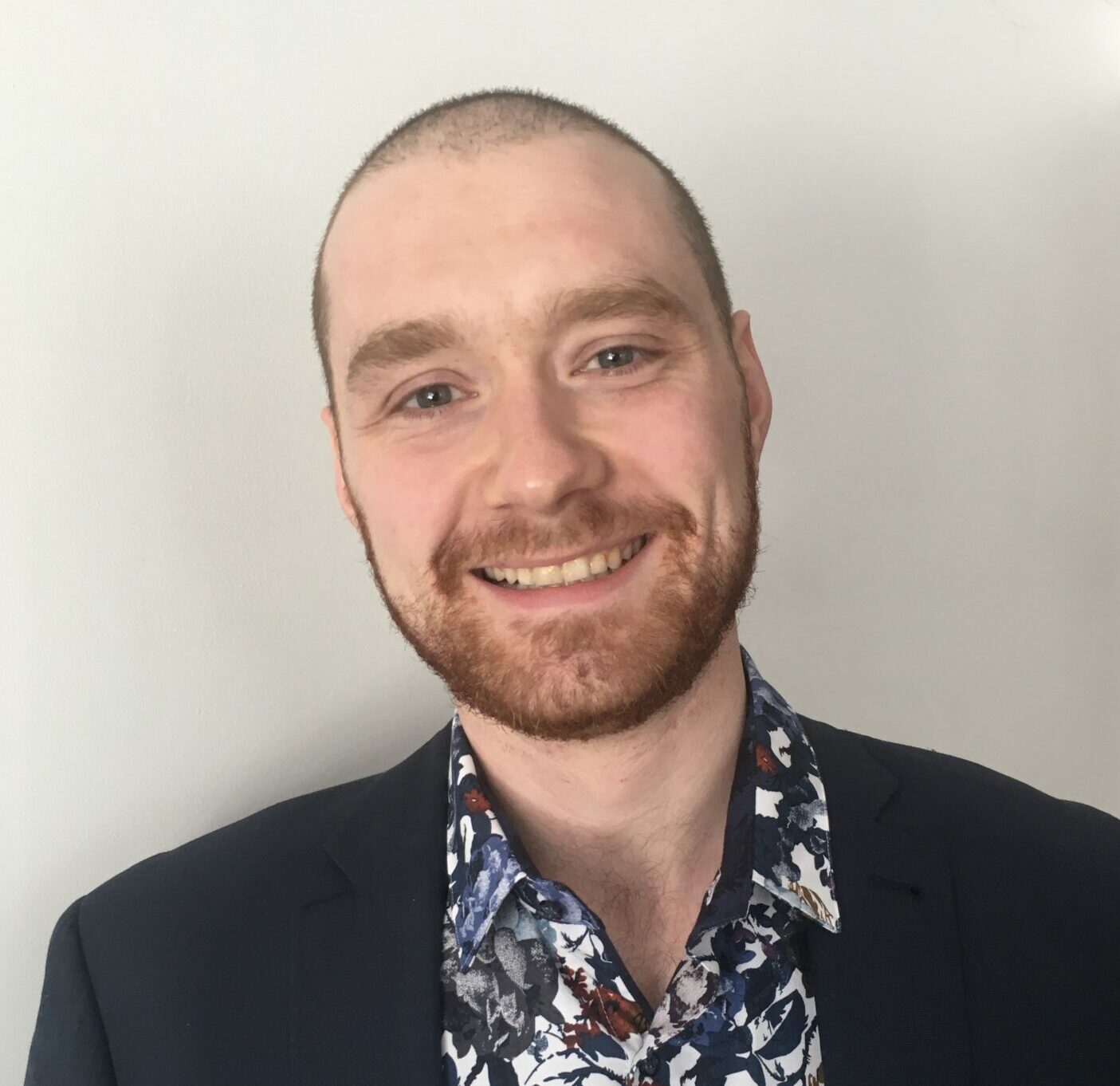
Michel Fournier-Simard
As a Dawson AI teaching fellow, Michel developed and led an Integrative Seminar (300-308-DW) focusing on Artificial Intelligence as a contemporary threat to liberal democracies. He also developed algorithmic policing-themed teaching activities adapted to Research Methods (300-300-DW), and introductory social science courses.
Patricia Campbell
Computer SciencePatricia Campbell is a member of the Computer Science Faculty. She has also taught in the Electro Tech Continuing Education. She has been teaching at Dawson College for over 25 years. Patricia has a BCompSci from Concordia University, and Performa MEd Diploma from Université de Sherbrooke. Also, long ago and far away, Patricia holds a…
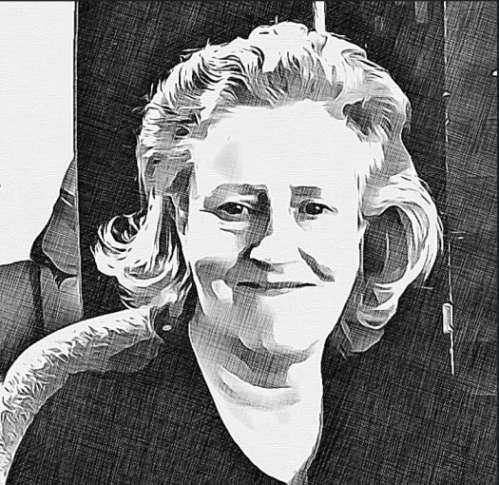
Patricia Campbell
Patricia Campbell is a member of the Computer Science Faculty. She has also taught in the Electro Tech Continuing Education. She has been teaching at Dawson College for over 25 years. Patricia has a BCompSci from Concordia University, and Performa MEd Diploma from Université de Sherbrooke. Also, long ago and far away, Patricia holds a DEC in Computer Science from Dawson College.
For the first part of Patricia's teaching career, she worked concurrently in the industry, in various positions. Her industry experience involves everything from Mainframe to IoT computing, including telecommunications infrastructure wired and wireless and systems development and deployment. As a result, Patricia has always emphasized the importance of computer science pedagogy to follow current developments in the industry, preparing students for ever-evolving careers.
Her current research interests include cloud-native software systems, development, management, and deployment. Parts of her research have been supported by ECQ grants received in 2020 and 2017. Her research focus is aimed at making the methods and ideas accessible to students, some of which can be found here: https://cloudnativeish.wordpress.com/
An important of Patricia's teaching philosophy involves trying to engage and ensure that a diverse and wide spectrum of humanity is involved in building the technology that underlies and is part of our day-to-day lives.
Sarah Allen
Humanities, PhilosophySarah Allen has been teaching Humanities and Philosophy at Dawson College since 2010. She is interested in ethical and political questions related to A.I. technology and its uses, as well as in A.I. applications to E-learning and education in general.
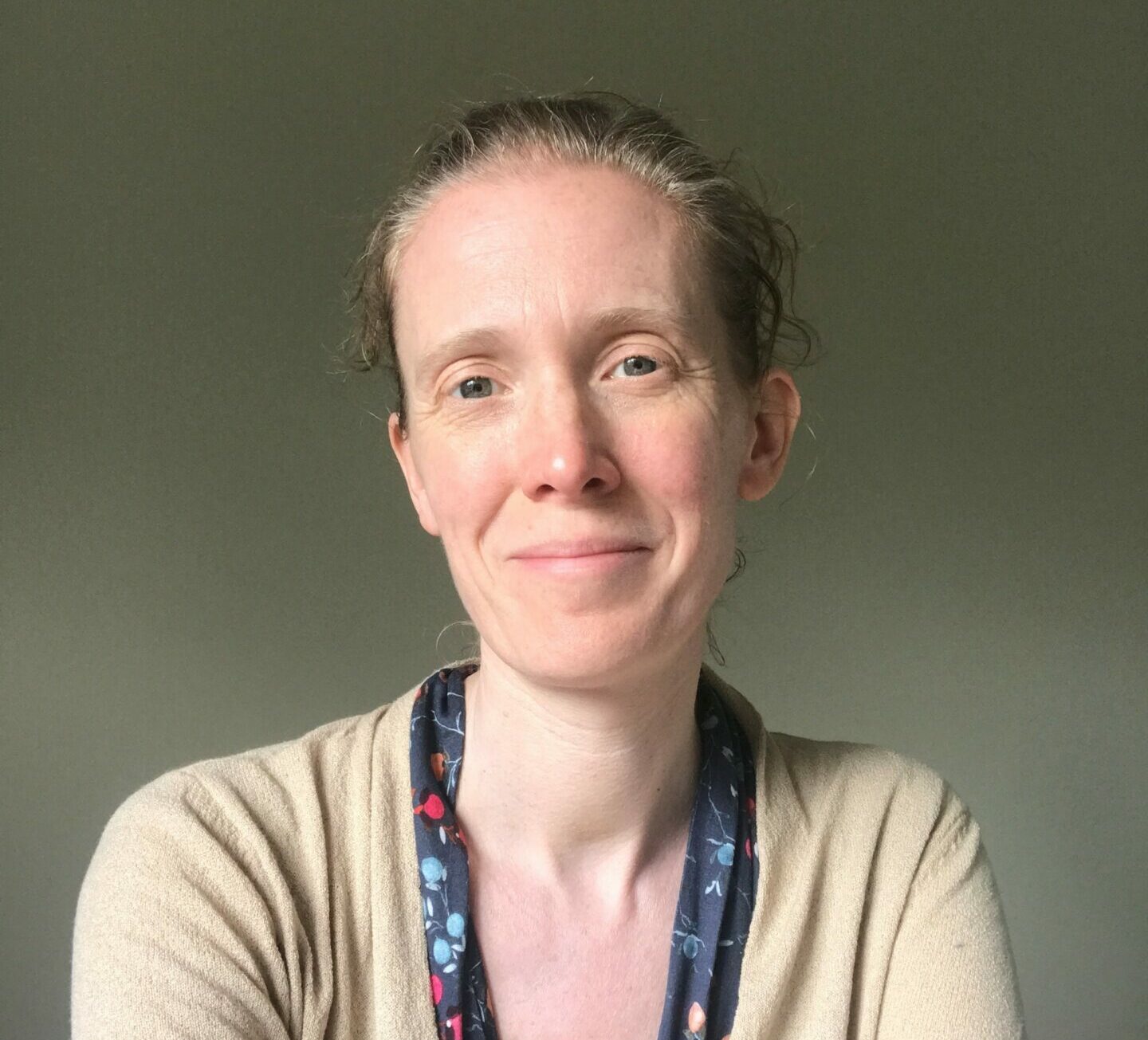
Sarah Allen
Sarah Allen has been teaching Humanities and Philosophy at Dawson College since 2010. She is interested in ethical and political questions related to A.I. technology and its uses, as well as in A.I. applications to E-learning and education in general.
2020-2021 Cohort
Ahmad Banki
EconomicsAhmad Banki teaches in the department of economics. He studied at the University of Calgary and McGill. His pedagogical experience and interests include the flipped classroom model, Universal Design for Learning, active learning, and immediate feedback strategies. He has collaborated with a number of communities of learning at Dawson. He has a YouTube channel featuring…
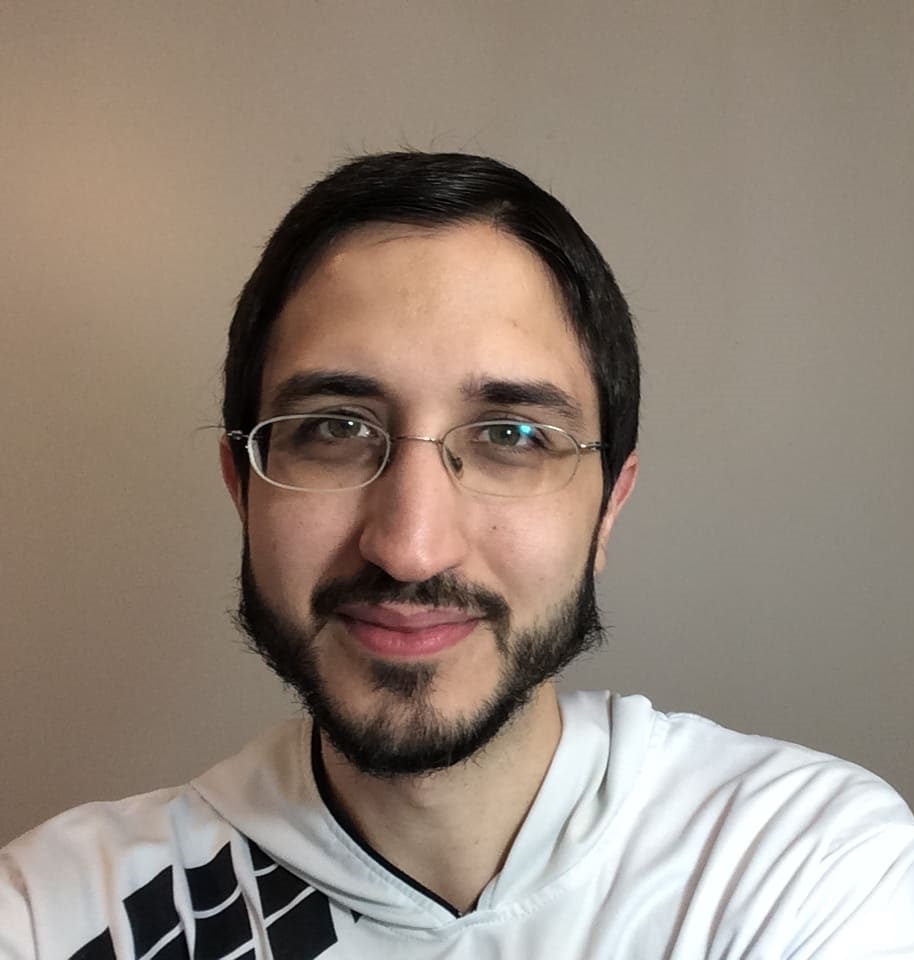
Ahmad Banki
Ahmad Banki teaches in the department of economics. He studied at the University of Calgary and McGill. His pedagogical experience and interests include the flipped classroom model, Universal Design for Learning, active learning, and immediate feedback strategies. He has collaborated with a number of communities of learning at Dawson. He has a YouTube channel featuring his pedagogical instructions and economics lessons. He is also an advanced user of Moodle.
Charles Le Guen
3D Animation & Computer Generated ImageryCharles Le Guen is the Chair of the 3D Animation & CGI department at Dawson College, where he has been teaching since 2013. For over twenty years, Charles has lived and worked around the globe, creating computer-generated visual effects for Hollywood feature films, video game cinematics, high-end television shows, and TV commercials. As a Computer…
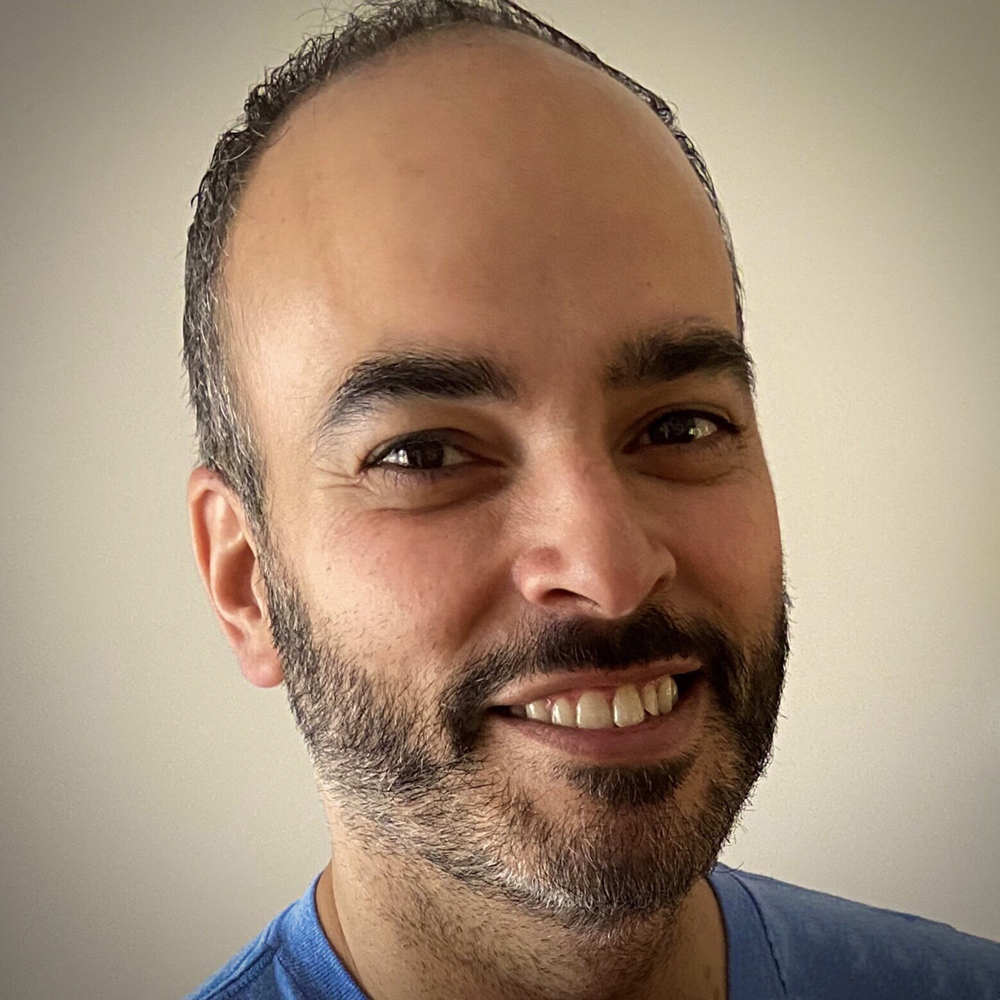
Charles Le Guen
Charles Le Guen is the Chair of the 3D Animation & CGI department at Dawson College, where he has been teaching since 2013.
For over twenty years, Charles has lived and worked around the globe, creating computer-generated visual effects for Hollywood feature films, video game cinematics, high-end television shows, and TV commercials.
As a Computer Graphics Supervisor, Charles has built and managed small, highly-skilled teams. As a technical artist, he is able to script in python, has often worked with beta software and is no stranger to learning new workflows under pressure.
With a University degree in Fine Arts, Charles also has prior experience as a traditional stop-motion animator, and has drawn professionally for numerous TV shows, including Arthur and Animal Crackers.
Charles has lived and worked in New York, Munich, Sydney, Adelaide, Auckland, as well as his home town of Montreal.
Cheryl Simon
Cinema-CommunicationsCheryl’s background and expertise lie in lens and screen based media arts practices. Initially a practitioner, she later became a writer and critic with a particular interest in the affective and political dimensions of amateur media technologies and personal archives. At different times, in different lives she has studied and written about the part played…
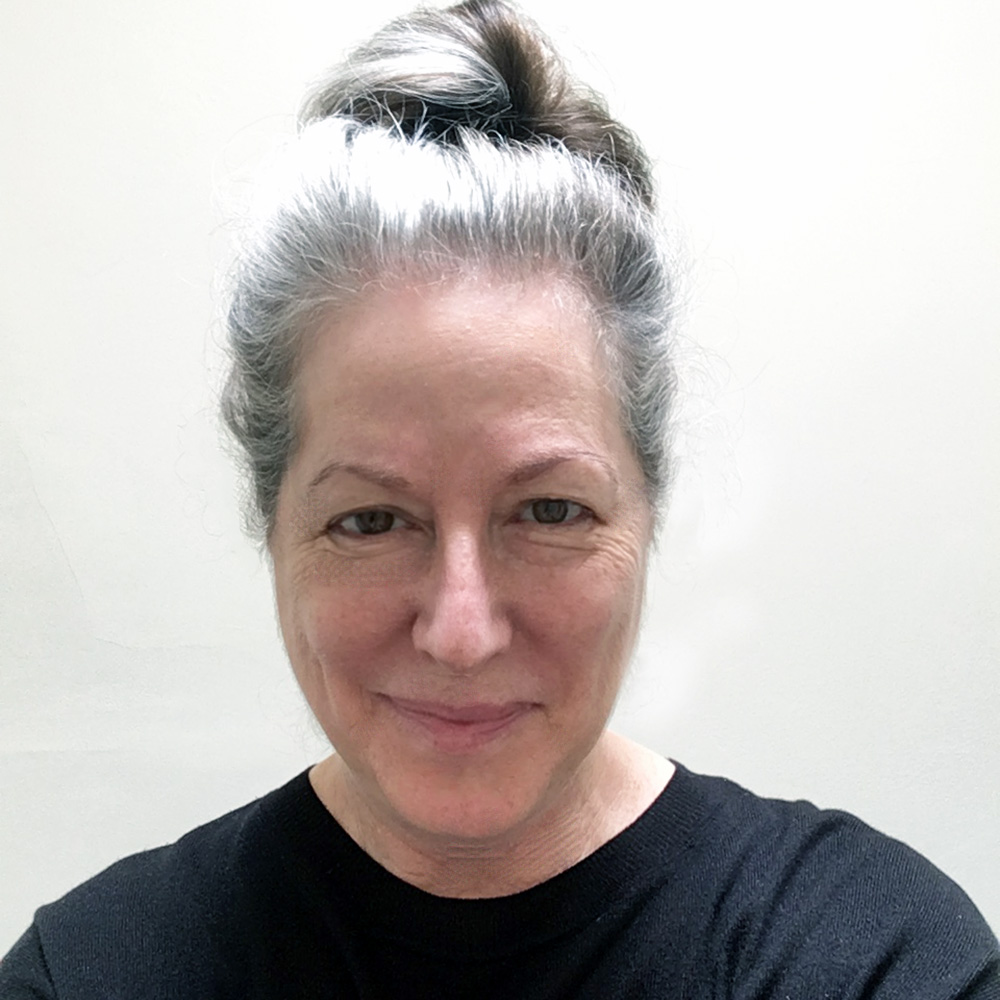
Cheryl Simon
Cheryl’s background and expertise lie in lens and screen based media arts practices. Initially a practitioner, she later became a writer and critic with a particular interest in the affective and political dimensions of amateur media technologies and personal archives. At different times, in different lives she has studied and written about the part played by domestic film/photography in the construction of self and group identities (MFA – Studio Arts, Concordia University), the role of popular cultural narratives contesting/negotiating the same (PhD Humanities, Concordia University), the aesthetics of archival and forensic practices in the digital age (Post-Doctoral Fellowship, Visual and Cultural Studies Program, University of Rochester), and, how changes in media forms see corresponding variations in human cognition and perception (ongoing). Her AI project considers the social and cultural implications of proliferating algorithms in the world of online communication, how they impact cultural production, and how they bear on social formation and exchange. Cheryl is currently the Coordinator for the Arts, Literature and Communications Program at Dawson and Co-Chair of the Cinema and Communications Department, where she also teaches.
Daniel Pomerantz
Computer ScienceDan Pomerantz is a faculty member in the Computer Science department. He initially became interested in AI during the Deep Blue vs Garry Kasparov chess matches, where a computer beat the previously unbeatable human chess champion. This was interesting because most analyses felt that Kasparov was better than the computer, but he suffered from two…
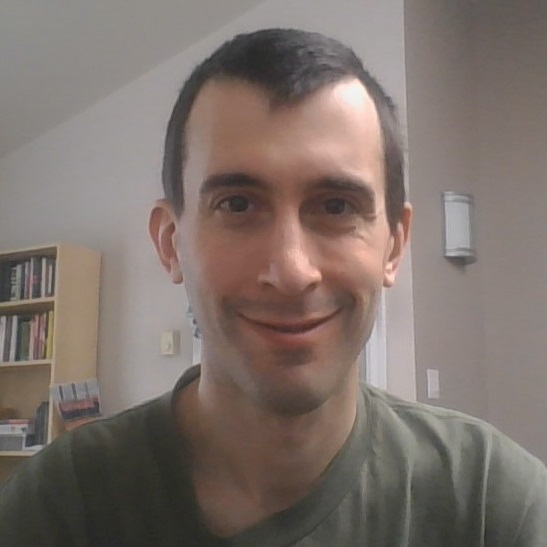
Daniel Pomerantz
Dan Pomerantz is a faculty member in the Computer Science department. He initially became interested in AI during the Deep Blue vs Garry Kasparov chess matches, where a computer beat the previously unbeatable human chess champion. This was interesting because most analyses felt that Kasparov was better than the computer, but he suffered from two human-specific problems—fatigue and emotions. Although early on, this really revealed the potential power an AI system could have due to a “secret weapon” of consistency.
For the Dawson fellows, Dan is primarily interested in developing course material related to the ethics of AI. These issues include (but are not limited to!) the ethics of facial recognition software, targeted advertising, self-driving cars, using cell phone tracking for epidemiological purposes, and more. Our society is changing rapidly, and it’s important for citizens to be capable of making informed decisions.
Garry Ka Lok Chu
MathematicsGarry Ka Lok Chu has been teaching at Dawson College for more than a decade. He works as an ambassador to deliver mathematical concepts in an easy fashion, with the primary goal to help students understand basic principles. He explores well-known and interesting daily-life probability questions in his statistics classes. He explains in online lectures…
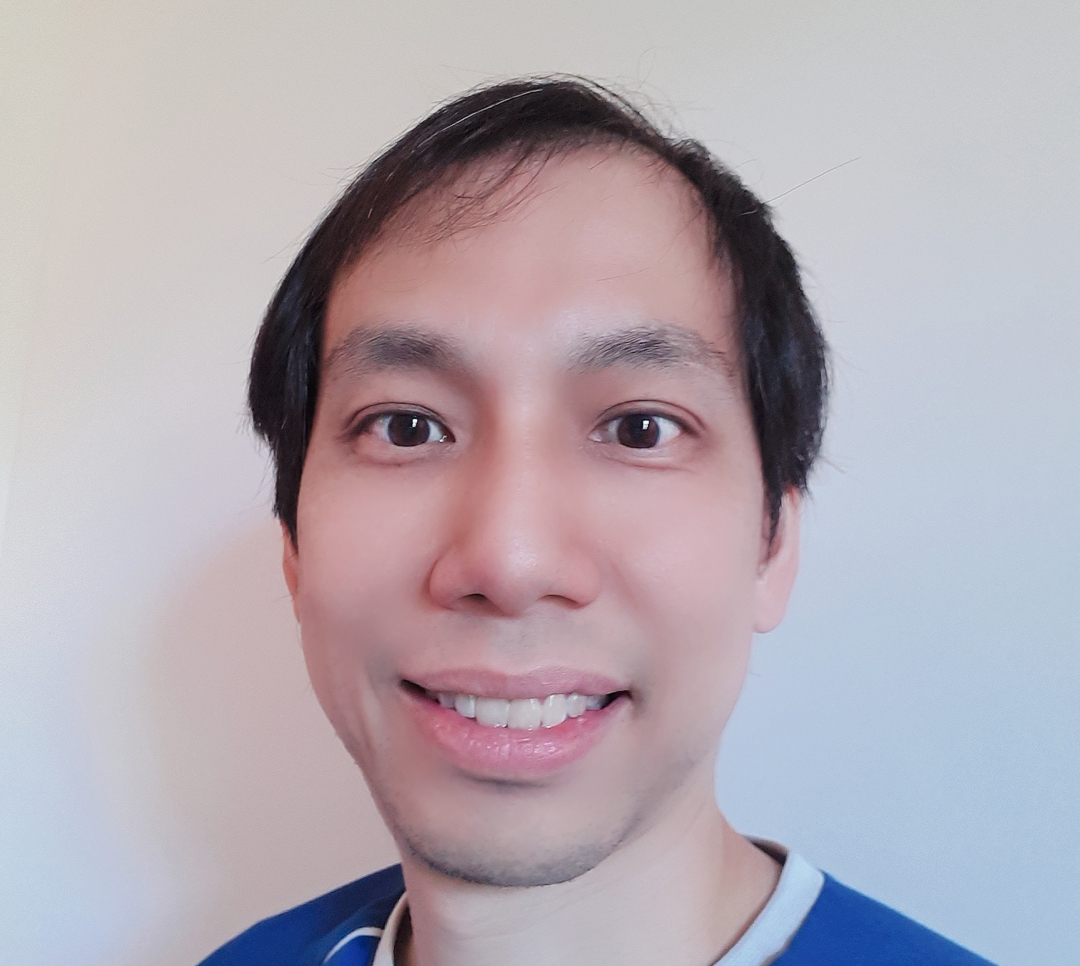
Garry Ka Lok Chu
Garry Ka Lok Chu has been teaching at Dawson College for more than a decade. He works as an ambassador to deliver mathematical concepts in an easy fashion, with the primary goal to help students understand basic principles.
He explores well-known and interesting daily-life probability questions in his statistics classes.
He explains in online lectures how to interpret timely statistical charts and different mathematical models concerning COVID-19.
He applies his technical knowledge to develop a course to help students appreciate the relationship between Math and Art in a recreational way, using magic squares, for example.
He believes now is an appropriate time to help students solve the mathematical mystery behind AI, or machine learning, based on statistical theory, linear algebra, and calculus.
Gregory Polakoff
HumanitiesGreg has been a faculty member in the Department of Humanities since 2011. Previously, he taught literature and humanities at Simon Fraser University. His graduate training is in comparative literature and Asian studies, and he has written on Nietzsche, critical theory, and modernism. Recently, Greg has been teaching courses in science fiction at Concordia University…
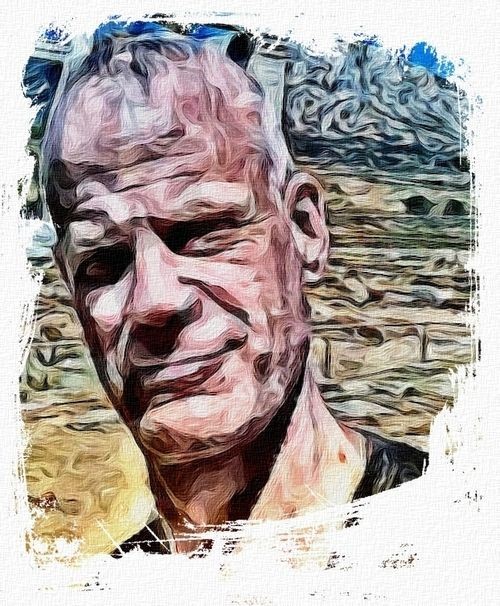
Gregory Polakoff
Greg has been a faculty member in the Department of Humanities since 2011. Previously, he taught literature and humanities at Simon Fraser University. His graduate training is in comparative literature and Asian studies, and he has written on Nietzsche, critical theory, and modernism. Recently, Greg has been teaching courses in science fiction at Concordia University and Dawson, which has inspired him to explore humanity's encounter with artificial intelligence. His research examines how it will transform the way humans construct notions of the self and other, culture, and language. Today, humans are constantly under the observation and scrutiny of AI. How will this relationship affect the way humans comprehend themselves and their relationship to their lifeworld? How will humans coevolve with AI, the planet's newest intelligent species? Will commonplace definitions of life and intelligence transform in the near future? Greg is developing modules for courses––both science fiction and otherwise––that inspire students to explore these immediate questions.
Jennifer Sigouin
SociologyJennifer Sigouin has been teaching Sociology at Dawson College since 2012. She completed her PhD from McGill University specializing in social stratification and quantitative methods. More specifically, she obtained a SSHRC Fellowship to help her investigate the potential wage gap experienced by racialized minorities in Canada. She also taught several courses as a course lecturer…

Jennifer Sigouin
Jennifer Sigouin has been teaching Sociology at Dawson College since 2012. She completed her PhD from McGill University specializing in social stratification and quantitative methods. More specifically, she obtained a SSHRC Fellowship to help her investigate the potential wage gap experienced by racialized minorities in Canada. She also taught several courses as a course lecturer at McGill University, and participated in research projects on migrants’ health. Prior to joining Dawson, Jennifer held multiple job positions ranging from analyst for the United Nations to web manager at UQAM. She is planning to develop a course that would address how traditional and contemporary sociological theories can be applied to the topic of artificial intelligence and, more precisely, to the creation of apps. She is hoping that this project will lay the groundwork for the future objective of bridging different disciplines around the theme of Sociology and Artificial Intelligence.
Vanessa Gordon
Political ScienceVanessa Gordon teaches Politics at Dawson College. Before that, she completed a BA in Politics from McGill and an MA in Comparative Ethnic Conflict from Queen’s University, Belfast. Before coming to Dawson, she worked in numerous countries and in a range of fields, including peacekeeping, crime prevention and international development.Her interest in artificial intelligence stems…

Vanessa Gordon
Vanessa Gordon teaches Politics at Dawson College. Before that, she completed a
BA in Politics from McGill and an MA in Comparative Ethnic Conflict from Queen’s
University, Belfast.
Before coming to Dawson, she worked in numerous countries and in a range of
fields, including peacekeeping, crime prevention and international development.Her interest in artificial intelligence stems from her experience with Canada’s
NetCorps Program, as well as her current involvement in the climate change
movement. Drawing on work undertaken by American political scientist Erica
Chenoweth, as well as MIT's Centre for Civic Media, Vanessa and her students will
explore how to use data to pursue meaningful social change.
2019-2020 Cohort
Bérengère L. Marin-Dubuard
Interactive Media ArtsIn his book On the Mode of Existence of Technical Objects, Gilbert Simondon warns against our tendency to anthropomorphize and present technical objects as antagonistic. He emphasizes the alienation that results in the loss of knowledge about and control of the tools workers have to deal with as craft are industrialized and automation becomes the prevalent mode of production….
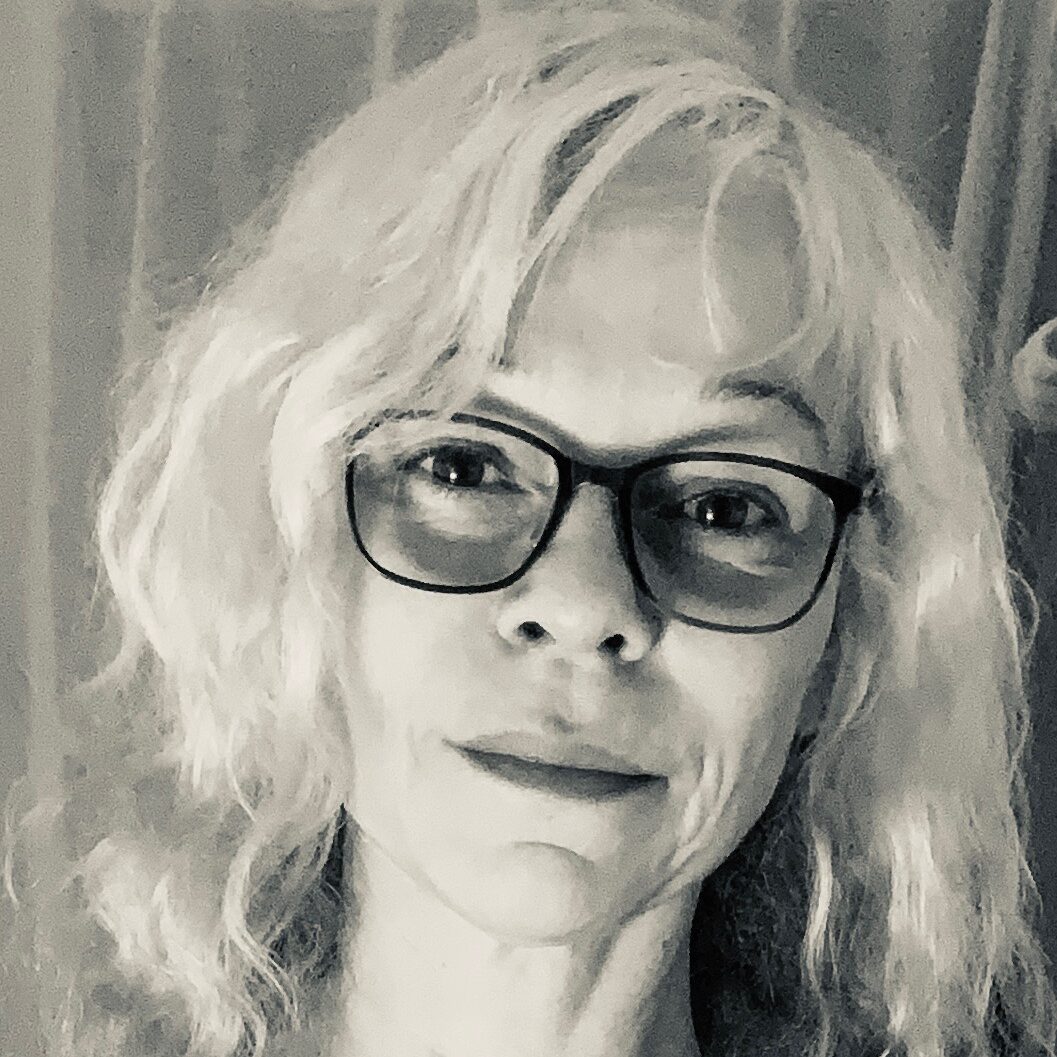
Bérengère L. Marin-Dubuard
In his book On the Mode of Existence of Technical Objects, Gilbert Simondon warns against our tendency to anthropomorphize and present technical objects as antagonistic. He emphasizes the alienation that results in the loss of knowledge about and control of the tools workers have to deal with as craft are industrialized and automation becomes the prevalent mode of production. (Mass consumption becomes the purpose of production and the utilitarian aspect of technology is at the forefront of capitalism) but for him (contrasting with Marx’s understanding of alienation) it is the lack of understanding of the workings of technical objects that is at the core of this alienation and loss of agency.
As the curator Natalia Fuchs has pointed out in her recent presentation at Mutek Montreal, artists working with AI take on the role of activists, inventors, and researchers as well. (Fuchs 2019)
Artists who make extensive use of technology in their work often precede technological development by many years.
For example, the very influential artists Steina and Woody Vasulka, the video art pioneers used analogue video feedback to create generative art. Video feedback is now cited as an example of deterministic chaos, and the early explorations by the Vasulkas anticipated contemporary science by many years. The Canadian artist David Rockeby is also at the forefront of technological development as demonstrated in his artwork, “the giver of names” and “Very Nervous System.”
The Russian artist Helena Nikonole provides an understanding of how artists appropriate technological algorithms introduced by scientists and “question machine education which, having penetrated all life spheres, is beginning to impact the world around us.” Nikonole observes that “Mass culture suggests scenarios where artificial intelligence appears as a threatening antagonist of humans and the rise of the machines is the most likely course of events following the technological singularity—a hypothetical moment when machine intelligence overcomes human abilities.”
Media artists, she reminds us, “focus our attention on significantly more crucial issues brought about by machine education based on an artificial neuron (which we imply speaking about artificial intelligence today).
Many artists have critical practices pointing to issues we are faced with as the technology is spreading: i.e., the fixity of norms, racial and other bias, etc. such as Mushon Zer-Aviv and Yonatan Ben Simon normalizing machine. Matthieu Cherubini points to the famous trolley problem and the ethics of automated decisions in his work on “ethical Autonomous Vehicules” and François Quevillon looks at the limitations of computer vision in “Algoryhtmic D ive”. Lauren McCarthy explores the tensions between intimacy and privacy, convenience and agency, and the role of human labour in AI and its potential for the future of automation; Joy Buolamwini points to racial bias embedded in the current AI facial recognition software. Anna Ridler explores speculation in her project Bloemenveiling (2019), interrogating the way technology drives human desire and economic dynamics by creating artificial scarcity. Montreal artist Sofian Audry’s conceptual explorations of AI can also be categorized as speculative explorations. Others like Tom White, François Quevillon, Georgia Ward Dyer and Gregory Chatonsky and the Germano-Japanese artist Hito Steyerl point to the limitation of the tools when recognizing and classifying images. Jason Lewis and Suzanne Kite are working on ethical guidelines for the creation of AI systems based on protocols inspired by Indigenous ontologies that place man “neither as height nor centre of creation”.
As a Dawson.AI fellow, Bérengère will focus on the work of artists that exemplify the issues and potential of machine learning and computerized automation as examples to contextualize the study of technical tools that constitute what is commonly called Artificial Intelligence.
Bérengère L. Marin-Dubuard (aka beewoo) is a media explorer who likes to experiment with perception in the entangled built and digital architecture through photography, motion graphics, live video processing, tangible media and interactivity. Questions related to agency, control, embodiment and perspective as they are affected by technological development are at the roots of these explorations. She has studied the relationship between the history of cybernetics, computer science, artistic practices and architecture.
beewoo has worked on many projects within collaborations such as Battery Operated and Kit Collaboration.
Focusing on Open Source Software, beewoo instigated and ran artistic creation programs such as Autonomy and Activism and Digital Ludology at the media Centre Studio XX in Montréal.
beewoo now also teaches in the Interactive Media Arts (I.M.A.) profile at Dawson College.
Her latest work investigates immersive architectural representation and tangible interfaces at the junction between media arts and games.
Jesse Hunter
Cinema-CommunicationsJesse Hunter is chair of Cincom at Dawson college. His interest in AI dates back to the 80s and he remains a perpetual student of communications technologies, new and old and their social relevance. He did his doctoral thesis exploring a then-emergent virtual reality through the lens of play and dramaturgy. He is now endeavouring to chart…
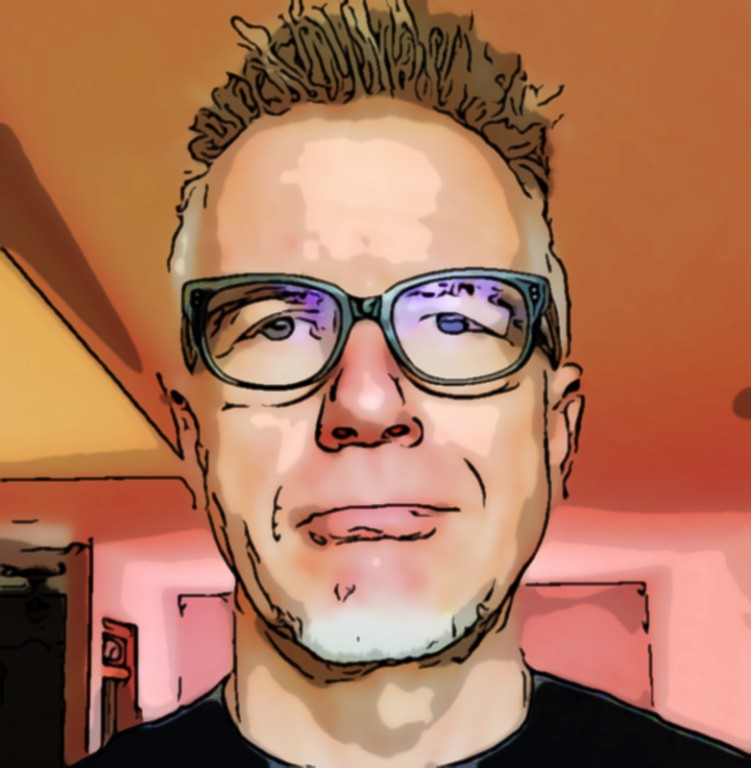
Jesse Hunter
Jesse Hunter is chair of Cincom at Dawson college. His interest in AI dates back to the 80s and he remains a perpetual student of communications technologies, new and old and their social relevance. He did his doctoral thesis exploring a then-emergent virtual reality through the lens of play and dramaturgy. He is now endeavouring to chart the evolution of AI discourses and how they may help us understand and even redefine ourselves.
Jonathon Sumner
PhysicsJonathon holds a Ph.D. in Mechanical Engineering from the École de technologie supérieure and has been a teacher in the Physics Department since 2005. While his expertise lies in computational fluid dynamics and wind energy, his current passion is in working with large datasets and building interactive data visualizations. Over the past few years, he has…
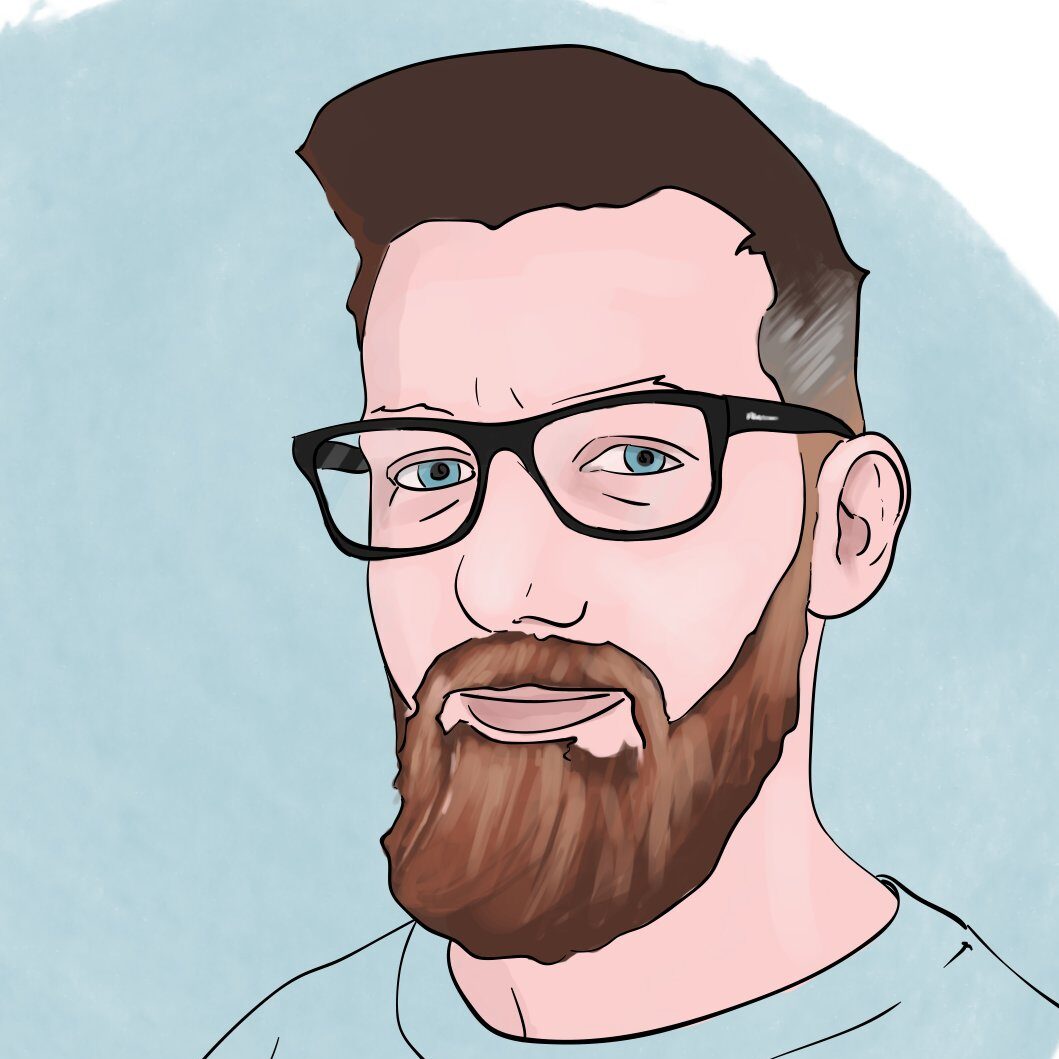
Jonathon Sumner
Jonathon holds a Ph.D. in Mechanical Engineering from the École de technologie supérieure and has been a teacher in the Physics Department since 2005. While his expertise lies in computational fluid dynamics and wind energy, his current passion is in working with large datasets and building interactive data visualizations. Over the past few years, he has started developing teaching modules in machine learning for students in the Science Program and hopes to expand into other areas related to artificial intelligence. He also helps organize the Coffee ’n’ Code club where students, staff, and faculty can learn Python.
Laurent Ruhlmann
Computer ScienceAs a DawsonAI fellow, Laurent will develop machine learning curriculum (using Python) for the 360-420-DW option course in the Science Program. He will also work to develop and integrate machine learning competencies for the Computer Science Program. Laurent is a faculty member of the Computer Science department. Before joining Dawson, he has been involved in…
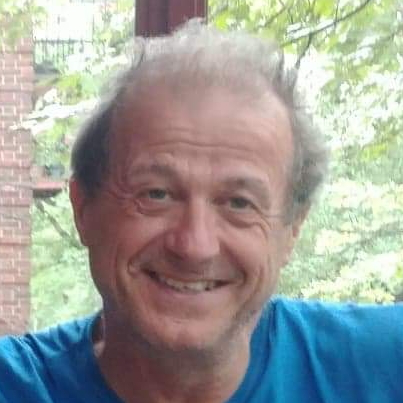
Laurent Ruhlmann
As a DawsonAI fellow, Laurent will develop machine learning curriculum (using Python) for the 360-420-DW option course in the Science Program. He will also work to develop and integrate machine learning competencies for the Computer Science Program.
Laurent is a faculty member of the Computer Science department. Before joining Dawson, he has been involved in many software development companies, for more than 20 years. He has an extensive knowledge of the computer graphics field, having done research at the NRCC and havingcbeen part of the Softimage Digital Creative software team among many other adventures. Most recently, he worked for Nvidia on the real time ray-tracing team, which contains a machine-learning based de-noising module.
He holds a MsC form the Strasbourg University in Computer Graphics and Remote Sensing, from a time when computers were big, expensive, and very slow.
In his free time he loves cooking, canoeing, and taking care of his grown up kids.
Rebecca Million
EnglishRebecca Million, M.A., teaches courses on myth and monsters, Science Fiction, journalism, and The Lord of the Rings in the English Department at Dawson College. Before coming to Dawson, she worked for CBC Radio One in Montreal. She published on George A. Romero’s Knightriders in the inaugural issue of MONSTRUM in 2018, and she will be a contributor to a companion to…

Rebecca Million
Rebecca Million, M.A., teaches courses on myth and monsters, Science Fiction, journalism, and The Lord of the Rings in the English Department at Dawson College. Before coming to Dawson, she worked for CBC Radio One in Montreal. She published on George A. Romero's Knightriders in the inaugural issue of MONSTRUM in 2018, and she will be a contributor to a companion to Shirley Jackson collection due for publication in 2020.
Rebecca Million (Eng.) and Marjan Heywood (Hum.) will develop a paired Humanities/English course about the ethics of interacting with non-human intelligences. In addition, we intend to launch a podcast where we interview thinkers, artists, and experts of all kinds about AI and its potentialities.
As an AI Fellow, Rebecca Million is working on developing a course in which speculative fiction and theoretical texts will be used to engender discussion around the emotional and psychological effects of dealing with “intelligences” engineered by humans, and the challenges humanity might encounter as we incorporate AI and genetic engineering into our (post-)human future.
Part of Million’s approach will be to explore the history of our interactions with non-human intelligences -- nonhuman animals, Nature, aliens, microbial life forms, etc., as a basis for understanding how we might consciously and conscientiously interact with AI in the future. We will also examine the consequences of our human tendency to create categories and hierarchies within our own species.
Robert Stephens
Humanities, PhilosophyRobert Stephens teaches Philosophy and Humanities at Dawson College, and is the current Coordinator of the ALC Arts & Culture Profile. He has a PhD in Philosophy from McGill University, where is dissertation was focused on defending a computationalist theory of human cognitive architecture, in which problems faced in the development of AI are used…
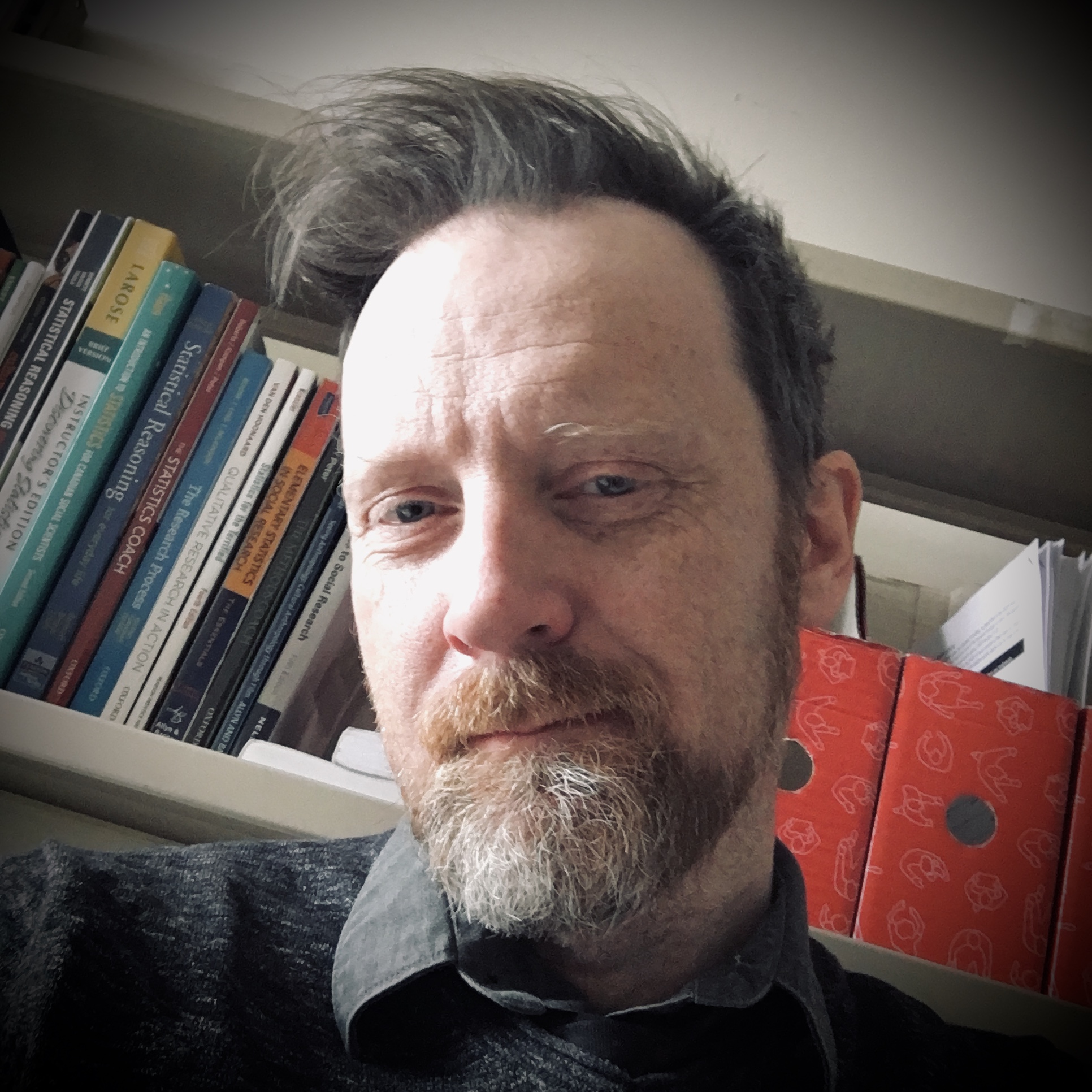
Robert Stephens
Robert Stephens teaches Philosophy and Humanities at Dawson College, and is the current Coordinator of the ALC Arts & Culture Profile. He has a PhD in Philosophy from McGill University, where is dissertation was focused on defending a computationalist theory of human cognitive architecture, in which problems faced in the development of AI are used to help illuminate how the human mind is organized, and how human cognitive limits may in turn be usefully studied to inspire new designs for artificial minds. In his classes at Dawson, he tries to facilitate student understanding and analysis of the impacts of widespread deployment of autonomous decision-making algorithms/artificial intelligence systems (AIS) with respect to three interrelated areas: potential economic/employment displacement, the essential data literacy and technical competency that all members of society will require, and the need to manage the transition to widespread integration of AIS in a socially beneficial, ethical, and equitable fashion. Before coming to Dawson, Robert was a High School English and Drama teacher. In his spare time, he builds custom electric guitars and ukuleles.
Sameer Bhatnagar
PhysicsI have been teaching Physics at Dawson College for 10 years, and have been an officer of the Science Program for almost as long. As part of an introductory computational modeling course, I have helped develop teaching modules for students on topics including reproducible research and the basics of machine learning. part of my work…
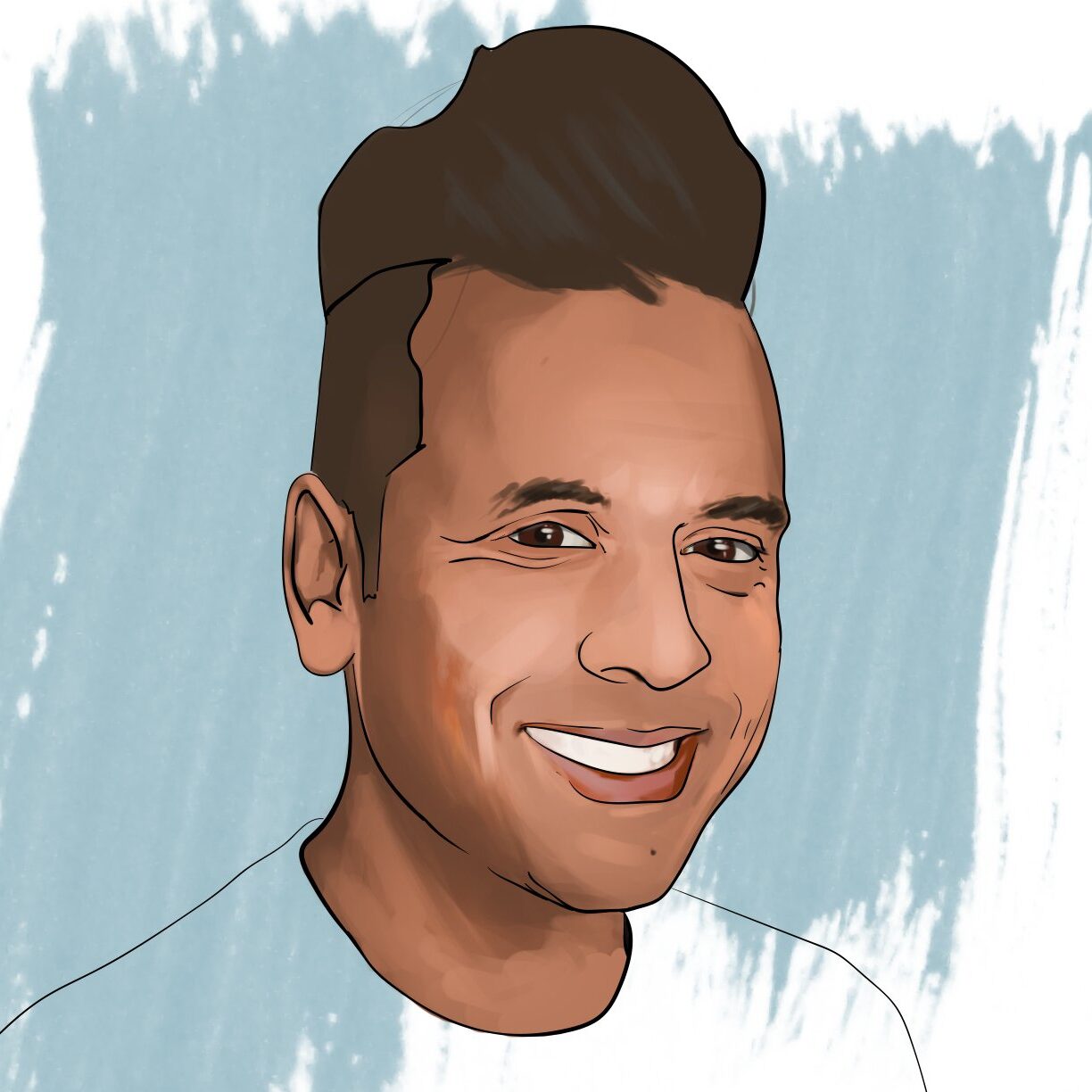
Sameer Bhatnagar
I have been teaching Physics at Dawson College for 10 years, and have been an officer of the Science Program for almost as long. As part of an introductory computational modeling course, I have helped develop teaching modules for students on topics including reproducible research and the basics of machine learning. part of my work in the DawsonAI initiative is helping with the Coffee 'n Code club. I am also in the final year of a PhD program at École Polytechnique, where my research lies in applications of Natural Language Processing and Learning Analytics.


